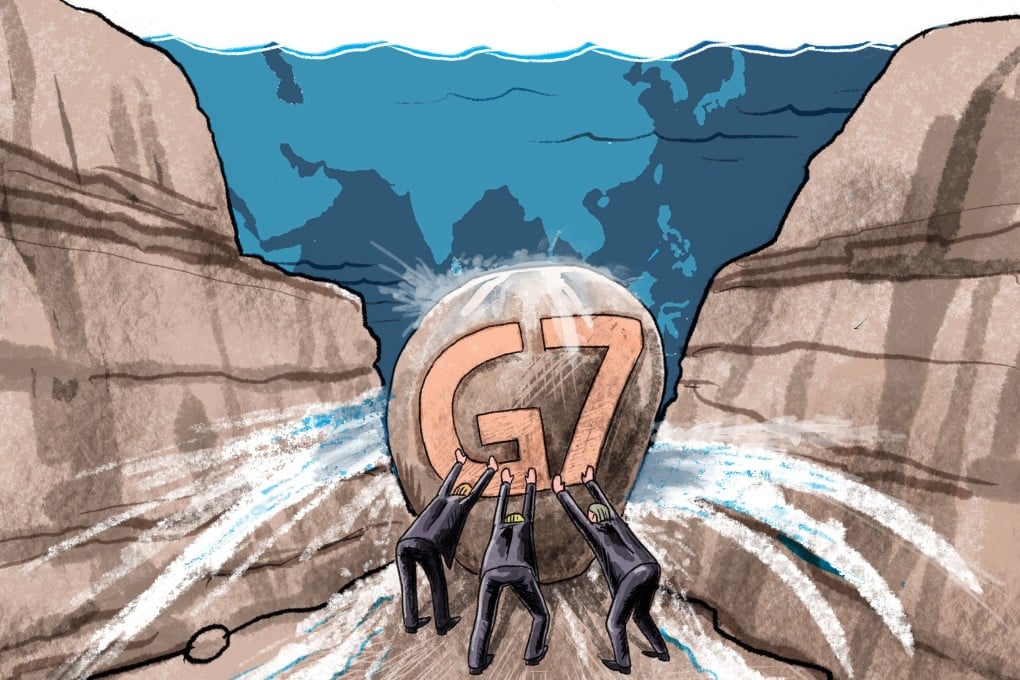Opinion | G7 must stop meddling in other nations’ affairs – including China’s – and accept it is no longer relevant
- As the G7’s slice of the world economy has shrunk, so has its importance and its leaders must adjust to the reality that the group’s influence is waning
- Long gone are the days when a handful of countries could freely meddle in others’ internal affairs and manipulate global issues

With weakening economic heft, representing the world has become a tall order for the G7. When it was founded in the 1970s, the G7 accounted for almost 70 per cent of the global economy. However, with the rise of developing countries and emerging economies, its share of global gross domestic product has continued to fall and is expected to dip to 30 per cent this year, according to the International Monetary Fund.
A World Bank report reveals that, from 2013 to 2021, the G7 contributed only 25.7 per cent of global growth, less than China’s 38.6 per cent. The US contributed only 18.6 per cent, less than half of China’s share.
As the G7’s slice of the world economy has shrunk, so has its relevance. Today’s G7 has neither the ability nor the will to solve any global political, economic or security problem, and its leaders must adjust to the reality that the group’s influence is waning.
